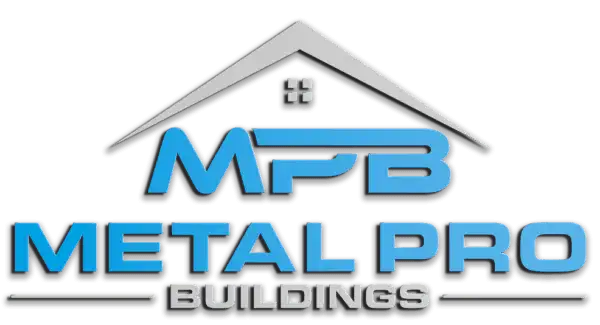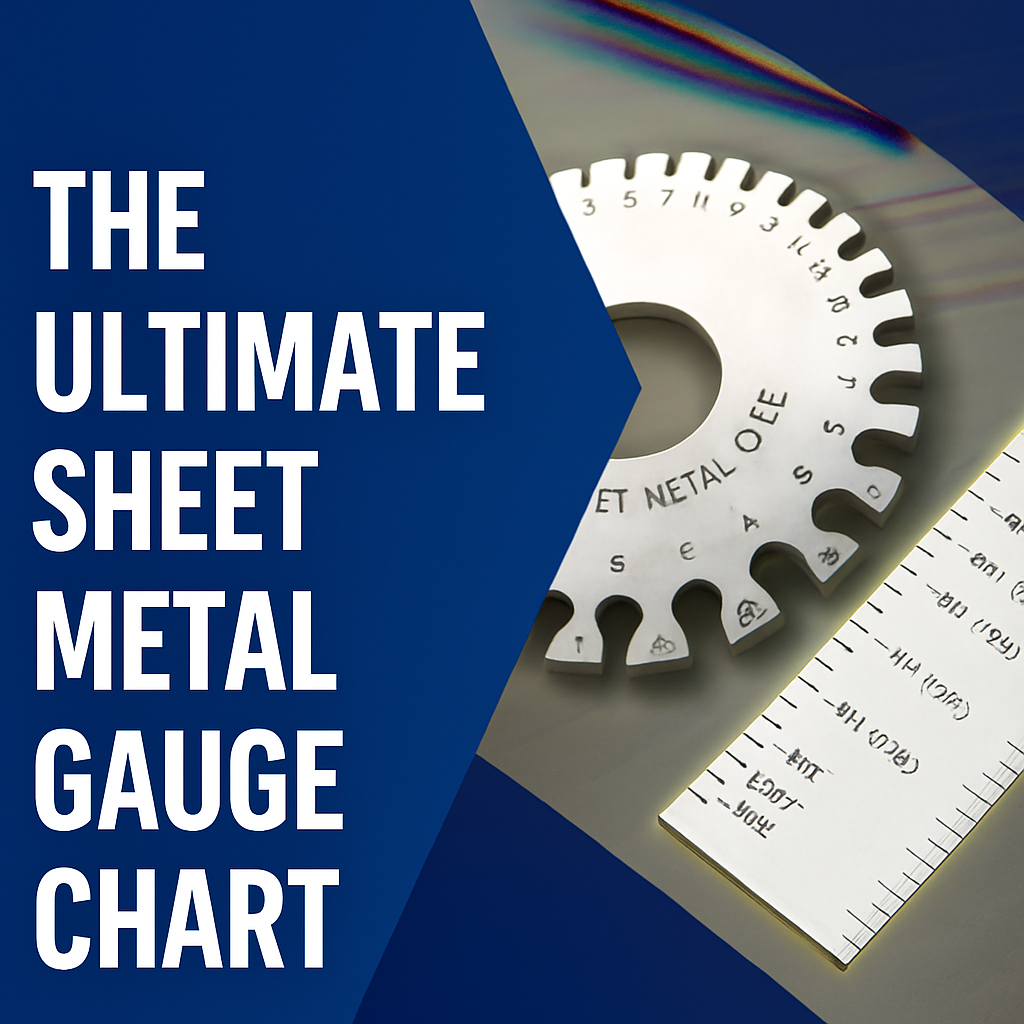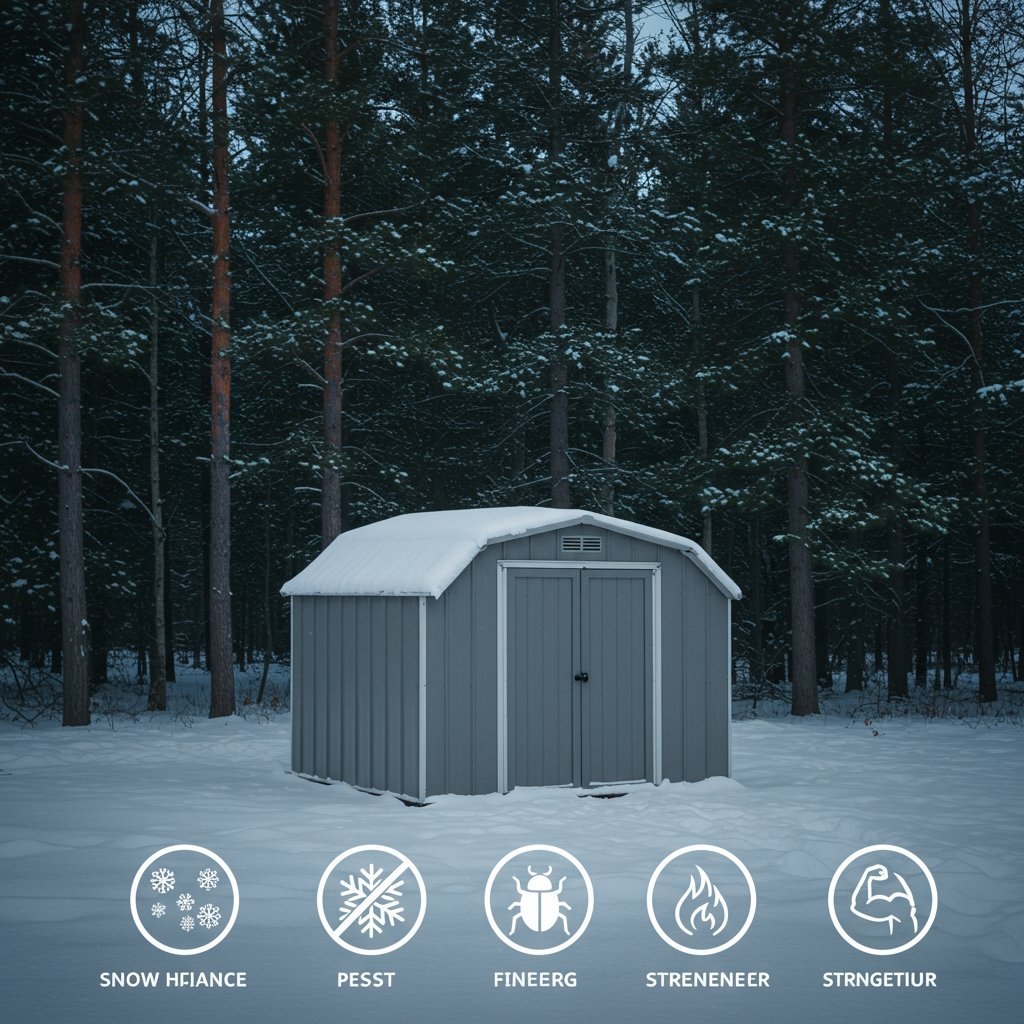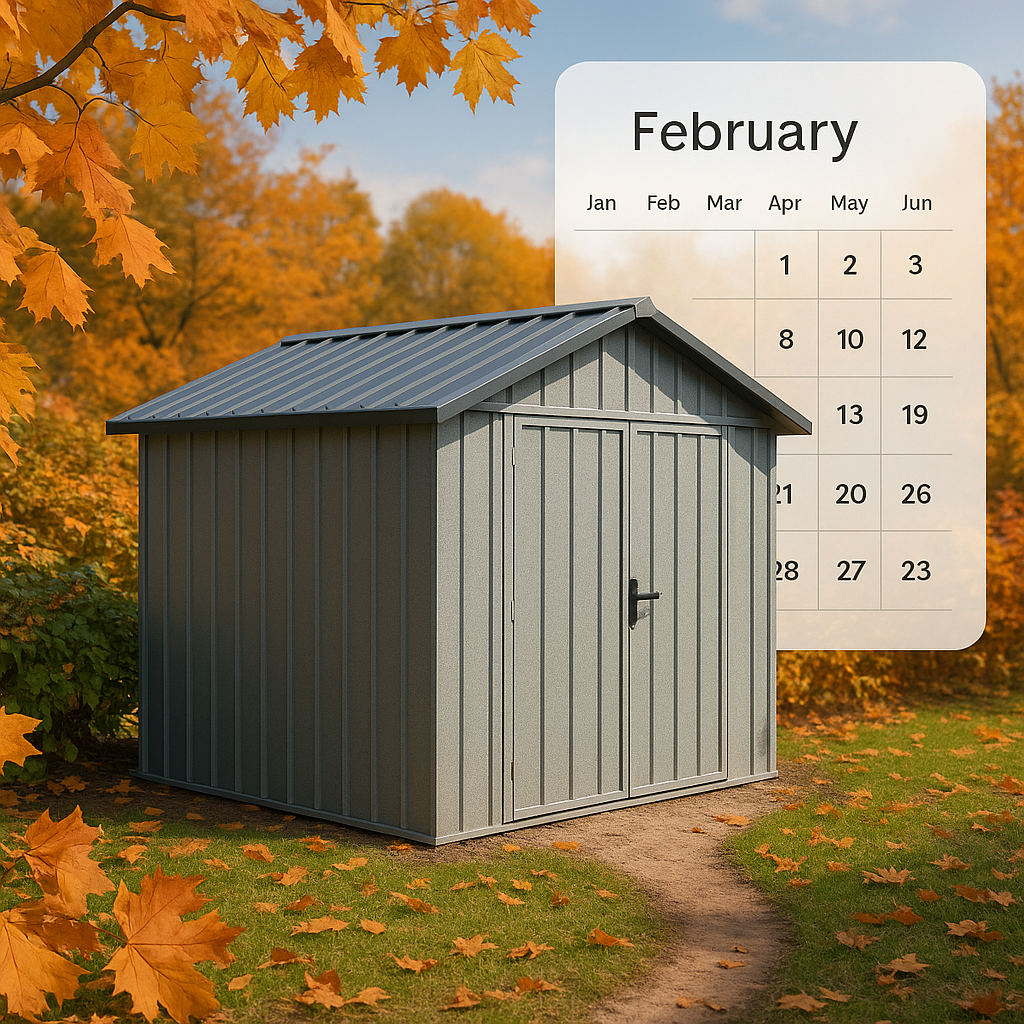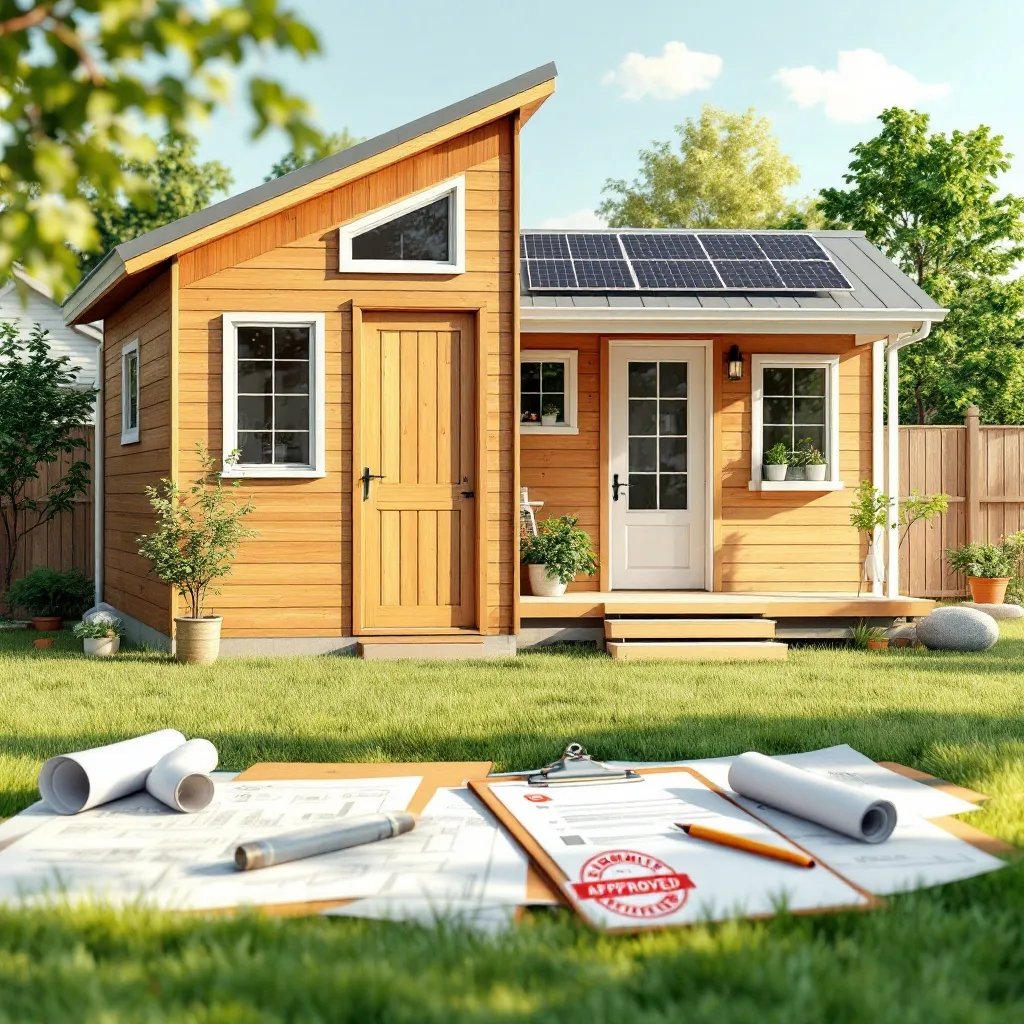You’re ready to invest in a steel shop building.
Now the decision comes down to one thing: choosing the right supplier.
The wrong choice means hidden fees, weak warranties, and costly rework. The right choice gives you decades of reliable performance with zero surprises.
This guide will show you exactly how to evaluate suppliers, compare offers, and make a confident purchase so your building works for you from day one.
Step 1: Define Your Non-Negotiables
Before you get quotes, you must be crystal clear on what you must have. These non-negotiables will help avoid surprises in cost, usability, and safety.
Key Must-Have Factors
| Factor | What to Think About | Why It Matters |
| Size & Clear Span | Decide how much square footage you need today and for the next 10 years. Consider whether you need a clear span (no interior columns). | Undersized shops or poorly planned spans force expensive expansions later. For example, an Alberta auto shop added a 40-ft canopy to fit semis ,something standard suppliers couldn’t handle. |
| Height, Roof Slope & Snow Load | Plan eave height for lifts, cranes, and storage racks. Roof slope and strength must match your local snow and wind zone. | Canada’s snow loads are some of the heaviest in the world. An inadequate roof design can cause leaks, ice dams, or even collapse. |
| Workflow Layout & Openings | Define how people, tools, and vehicles move. Set door sizes, bay spacing, and interior partitions. | Too-small doors or tight spacing will cripple operations. Retrofitting larger openings later is costly and delays business. |
| Local Codes & Certification | Ensure suppliers meet the National Building Code of Canada and hold CSA A660 certification. Get engineered drawings stamped by a professional engineer. | Without compliance, your permits will be denied. Non-certified manufacturers risk fines, liability, and unsafe builds. |
| Steel Frame Quality | Choose the right frame type (rigid-frame, cold-formed), steel gauge, and protective coatings. | Heavier steel and proper coatings extend the lifespan of your shop, especially in Canada’s harsh winters. Thin, low-grade steel corrodes fast. |
| Future Expandability | Plan now for add-ons like lean-tos, bays, or building extensions. | Expansion is far cheaper if designed into the original plans. Without it, you may face demolition just to grow. |
| Aesthetics & Branding | Colours, finishes, and facade to match your business identity. | Franchise operators, like Fountain Tire, had to meet corporate branding while still meeting engineering specs. This avoided costly redesigns. |
Quick Self-Check
Ask yourself:
- Do I know the exact size and height I need now and in 10 years?
- Have I listed the features my shop cannot run without (doors, bays, crane rails)?
- Does my supplier guarantee compliance with Canadian codes and certification?
- Am I planning for growth and branding, not just today’s minimums?
If you can’t answer “yes” to all of these, pause before shopping quotes. Clarity here is your shield against hidden costs and long-term headaches.
Step 2: Evaluate Building Quality & Compliance
Making sure your steel shop building is high quality and meets Canadian legal/regulatory requirements is non-negotiable. Here’s what to look for.
Key Elements to Verify
| Element | What to Ask / Check | Why It Matters |
| Building Codes & Design Standards | Ask the supplier if designs follow NBCC (National Building Code of Canada). Check whether they use CAN/CSA-S16 (steel structures) and CAN/CSA-S136 (cold-formed steel). Require drawings stamped by a provincially licensed engineer. | These standards ensure strength, safety, and permit approval. Without them, you may get rejected in permits or risk structural issues under snow/wind load. |
| Manufacturer Certification (CSA A660, CWB, etc.) | Confirm the manufacturer has CSA A660 certification for steel building systems. Check for CWB (Canadian Welding Bureau) certification (e.g. for welding standard W47.1 or W59). | Certified manufacturers follow consistent quality and manufacturing practices. These certifications are often required for permit approval and play a big role in building durability. |
| Material Quality & Load Ratings | Ask for the steel gauge, type of coating (galvanized, Galvalume, etc.), panel thickness. Also, require load ratings: snow load, wind load, seismic load relevant for your area. | Canada has wide variation in snow, wind, and seismic conditions depending on the province. A building that’s not rated properly will suffer damage or be unsafe. |
| Warranty & Structural Guarantee | Review what warranties are offered: structural integrity, rust/perforation, paint/coating, fasteners. See the duration, what’s included and what’s excluded. | A strong warranty protects you from poor materials, manufacturing defects, or damage under normal conditions. |
| Compliance & Permit-Ready Documents | Supplier should supply all required documentation: stamped engineering drawings, manufacturing & design certification, load calculations. | Permit offices require complete documentation. Missing or vague documents delay approval or result in needing re-design work. |
| Standards of Practice & Fabrication Tolerances | Ask about the manufacturer’s fabrication tolerances (how precise components are), and whether their steel parts are inspected / tested. | High precision reduces leaks, fitting problems and on-site adjustments. Lower quality fabrication leads to gaps, misalignments, rust paths. Also relevant under Canadian Institute of Steel Construction best practices. |
Step 3: Compare Supplier Packages Side-by-Side
Getting multiple quotes might feel tedious but this is where you can save thousands and avoid costly surprises. When comparing supplier packages, you need to look beyond the “base price.” You want a true apples-to-apples comparison.
What to Watch For in Quotes
| Component | What Should Be Explicitly Included | Why It’s Important |
| Base Kit vs Add-ons | Make sure quotes list what’s included in the base building: roof panels, wall panels, framing, fasteners, basic trim. Also list separately any optional upgrades (insulation, doors, windows, mezzanines). | Many quotes hide “must have” items as add-ons. You might think you’re getting a deal, then pay extra for features you thought were standard. |
| Site Preparation & Foundation | Should specify the cost for site grading, concrete slab or pier foundations, drainage work if needed. | Site prep and foundations can often double your initial budget if not accounted for upfront. Metal Pro’s cost breakdown article warns about these hidden fees. |
| Delivery & Installation / Erection | Ask: is delivery to your site included? Is erection (assembly) included, or is that separate? What about cranes, labor, etc.? | Sometimes quotes include the kit only, leaving you with large extra costs for moving material and putting the building up. These quote differences can be huge. |
| Doors, Windows, & Insulation | Are doors and windows included or extra? What type (overhead door, walk doors)? Is insulation included or optional? Which R-value or material? | If doors or insulation are omitted, your building might be uncomfortable, inefficient, or non-compliant with local codes. Cheap doors can leak, cause energy losses. |
| Warranty & After-sales Service | Does the quote mention warranty on structure, roof, coatings, fasteners, etc.? How many years? Is there support after installation? | Warranty is a shield. Without it, any defects or early wear cost you directly. Good support can solve issues before they escalate. |
| Permitting Support & Engineering Documents | Will suppliers provide engineered drawings, load calculations, stamped drawings for permit applications? Is there design support? | Getting a permit without required drawings is often impossible. Delays for resubmission cost money. Having these included reduces risk. |
| Hidden Costs | Look for fees not obvious: taxes, permit fees, site surveying, electrical / plumbing hookups, utility access, unexpected ground conditions. | These small items add up. The best suppliers (like Metal Pro) state “No Hidden Cost” so quotes reflect what you’ll pay. |
How to Make Quotes Truly Comparable
- Make a checklist of specs: dimensions, door sizes, elevation, insulation type, finish, etc. Send the same checklist to every supplier.
- Get itemized quotes: ensure each quote breaks down cost line by line. Don’t accept vague totals.
- Review tolerances & material grades: if one supplier uses thicker steel, better coatings, or premium fasteners, note that even if price is higher, value will be better.
- Include all relevant extras: ask each supplier to include everything: site prep, delivery, erection, engineering documents.
- Ask about what’s not included: sometimes quotes will exclude things by default (e.g. insulation, doors, windows) unless specifically requested.
Step 4: Assess Vendor Reputation and Service
You don’t just want good steel. You want a supplier you can rely on before, during, and after the build. Here’s how to evaluate that.
What to Check
| Aspect | What to Investigate | Signals of Good or Bad |
| Customer Reviews & Ratings | Read what past buyers say: project delivery, accuracy of quotes, responsiveness. | High overall ratings + detailed positive comments are good. Complaints about missing pieces, slow replies, or unexpected costs are red flags. |
| Support Before Purchase | Does the vendor clearly explain specs, permit help, delivery timelines? Do they respond fast to questions? | Good service includes fast replies, clear information, and helping you understand what you’re buying. Long delays or vague answers raise risk. |
| After-Sales & Warranty Service | Check what happens after delivery: Are missing parts replaced? Do they honour warranties? Is there support if you run into issues installing? | A vendor that follows up later, fixes problems, and keeps you informed shows integrity. If warranty claims are hard to get, warning sign. |
| Transparency in Processes | Is all cost and specification clearly listed? Are terms like delivery, installation, anchor bolts, base plates all in writing? | Transparent companies avoid surprise fees. If you find missing items or hidden charges in reviews, that’s telling. |
What Real Customers Say About Metal Pro Buildings
Step 5: Decision Toolkit, The Buyer’s Checklist
Before signing any contract, run through this checklist. If a supplier fails even one item, that’s a red flag.
- Structural Warranty : Look for long-term protection (Metal Pro backs buildings with a 50-year rust perforation warranty).
- Canadian Engineering Drawings: Ensure you get drawings stamped by licensed Canadian engineers. Metal Pro supplies three sets plus digital copies for review.
- Code Compliance : Confirm the building meets the National Building Code of Canada, with snow, wind, and seismic ratings specific to your location.
- Certified Manufacturing : Choose suppliers with CSA A660 certification. Metal Pro meets this standard, ensuring consistent quality.
- Steel Quality: Demand 22-gauge or thicker steel with corrosion-resistant coatings like Galvalume Plus™.
- Transparent Quotes : No hidden costs. Make sure all doors, windows, insulation, delivery, and accessories are clearly listed.
- After-Sales Support : A supplier should replace missing or damaged parts promptly and honor warranty claims without hassle.
- Proven Reputation: Look for BBB accreditation and strong customer reviews. Metal Pro holds an A+ rating with the Better Business Bureau.
Step 6: Proof That Builds Confidence
When you choose a steel shop building, you don’t just want promises you want proof that the supplier can deliver. At Metal Pro Buildings, our track record speaks for itself.
Real Proof Points
- Built for Canadian Weather
Every Metal Pro building is engineered to handle heavy snow loads, high winds, and seismic activity. From Ontario winters to the West Coast rain, our buildings are designed to last. - Certified to Canadian Standards
All our buildings meet CSA A660 requirements and come with engineer-stamped drawings for your province. This means permits are smoother and you can build with confidence. - Long-Term Warranty
We back our buildings with a 50-year rust perforation warranty. That’s half a century of protection so you know your investment is secure. - Trusted Reputation
Metal Pro holds an A+ BBB rating and has helped thousands of Canadians build steel shops, garages, and warehouses across the country.
What This Means for You
When you work with Metal Pro Buildings, you get:
- A building designed for your site and climate.
- Documentation that makes permitting straightforward.
- A supplier who stands behind their product for decades.
- Proof that you’re buying from one of Canada’s most trusted steel building providers.
Conclusion & Next Steps
Choosing the right steel shop building isn’t about picking the cheapest kit. It’s about choosing a partner who delivers strength, compliance, and lasting value.
At Metal Pro Buildings, we:
- Design every structure to Canadian codes.
- Back our steel with a 50-year warranty.
- Provide engineer-stamped drawings to simplify permits.
- Build for snow, wind, and seismic conditions across Canada.
When you buy from us, you’re not just getting a building, you’re investing in peace of mind for decades.
Ready to get started?
Request your free custom quote today and speak with a Metal Pro design consultant who understands your needs. Together, we’ll build a shop that works as hard as you do.
